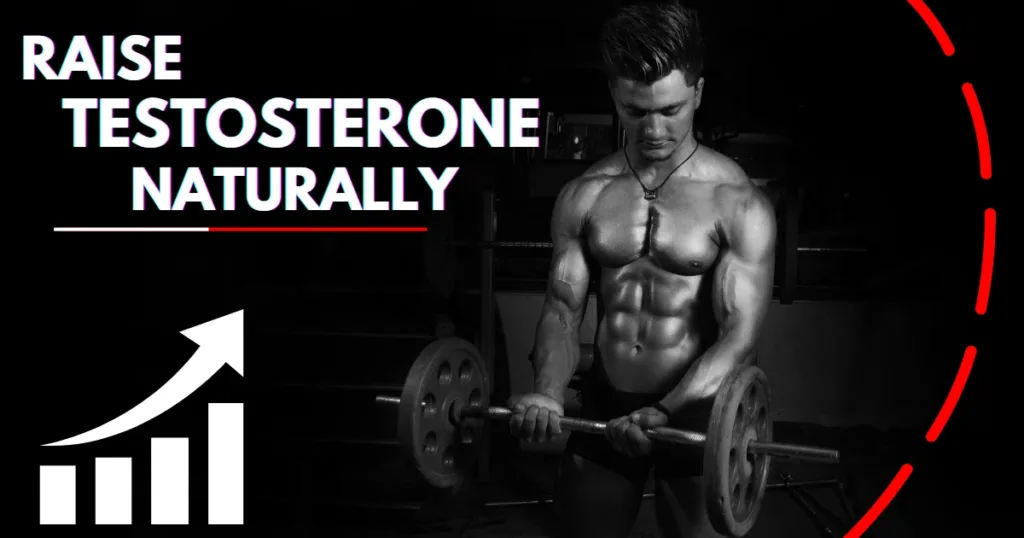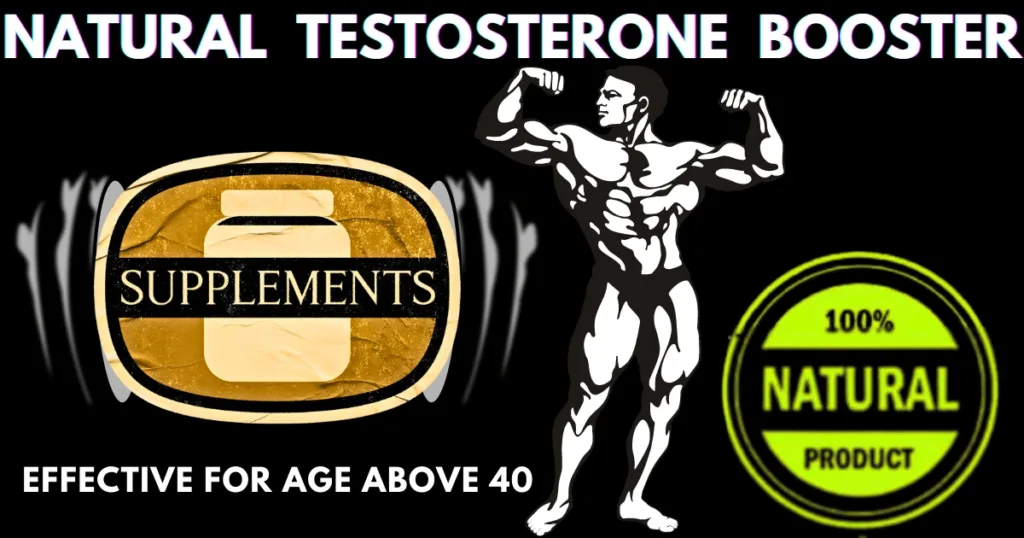Worried about low levels of testosterone? Studies show a 1% yearly decline after 30. Experts warn levels < 300 ng/dl may cause men’s issues

Table of Contents
Is it common for a 40-plus man to have a low levels of testosterone ?
Testosterone deficiency affects between 2% and 10% of the U.S. population. According to available research documents, it affects about 16 million males in the U.S. If you’re noticing that your libido is off, you’re having trouble getting through your workout, or you’re feeling down, it could be because your testosterone levels are too low.
A low testosterone level can cause various symptoms, and several factors can cause a deficiency. Testosterone is the optimum and the primary male sex hormone, mainly produced in your testicles. It plays an optimum role in many bodily functions, such as muscle mass, bone density, sexual function, motivation, drive, mood stability, and even red cell production (which is something most people don’t even think about), according to William Nall D. O., an Osteopathic Board-Certified Physician in Neuromuscular and Spinal Musculo-Skeletal Medicine.
Why are testosterone levels falling?

Low testosterone levels can result from various factors, some of which are innate, while others may be due to lifestyle changes or changes in health.
- The most common cause of low-testosterone levels is aging.
According to Research documents, men typically reach their hormone peak in their mid-30s, after which testosterone levels decline and reach their lowest point around age 50. This is when total testosterone levels drop by approximately 1.6% per year, with about 20% of men over the age of 60 having levels that would be considered low. This decrease in the testosterone levels may be due to hypothalamic and pituitary-rhythmic functioning deterioration, which maintains hormonal balance. It may reduce the number and sensitivity of the testicular cells responsible for testosterone production and sperm. Additionally, testosterone levels may not decline in some men, as evidenced by research from a few years ago.
- Testicular disorders can be a cause of low testosterone.
The testicles are the key source of testosterone, so any damage or condition that affects these organs can affect testosterone production. For example, if you have an undescended testicle from early childhood that was never corrected. Suppose you have Klinefelter syndrome, which is abnormal sex chromosomes, or if you suffer from infections or injuries to your testicles, i.e., Hypogonadism.
- A pituitary gland disorder can be a cause of low testosterone levels.
A condition of the part of the brain that tells the testicles how to produce testosterone, it can lower your testosterone levels. According to the Mayo Clinic, Kallmann’s syndrome is an abnormality of brain development that can affect average testosterone production.
- Chronic health conditions result in low testosterone.
Inflammatory diseases, such as tuberculosis, sarcoidosis, and HIV and AIDS, affect both the hypothalamus and the pituitary gland, according to the American Urologic Association (AUA). Autoimmune diseases, together with Rheumatoid Arthritis (RA) and lupus (Lupus), have been linked to testosterone deficiency.
- Lack of enough sleep reduces testosterone levels significantly
Testosterone peaks between 3 and 7 am for men with regular sleep schedules. Your testosterone levels drop when you do not get enough sleep, as many Americans are chronically doing. A small study found that one week of not sleeping for ten healthy young men decreased testosterone levels by 10 to 15%.
- The specific type of medications and substances reduces testosterone levels.
Chemotherapy Radiation Alcohol Opioids Anabolic- androgenic steroids Research shows that T levels are affected by substance and drug abuse.
- Being overweight is associated with low testosterone levels.
Several mechanisms play a role in low testosterone. Leptin, a hormone secreted through fat cells, is thought to inhibit testosterone production. Fat deposits also affect the function of the testicular gland, which tells the testicle how much testosterone it should produce.
Natural testosterone booster for 45-year-old men

Testosterone is the primary hormone in men when it comes to libido, obesity, mood swings, depression, aging, and much more health-related issue. If one has a higher or, let’s say, sufficient clinical level of testosterone in one’s body at the age of 45 or more, then he will always be in a happy mood, have a high sex drive, be energetic, more functional, and attractive too. Many natural testosterone boosters are available on the market to regain the primary testosterone levels in your body; some are even in your kitchen now. Let us explore them one by one.
Foods that increases testosterone levels naturally
If you want to get your testosterone levels up, try a few foods. They’re all locally sourced and easy to make, so you don’t need to be a pro to get the desired results. Here’s what you can try:
- Coconut
Your body needs healthy saturated fats to produce most hormones, and testosterone is one of them. Coconut will help your body to make cholesterol, which is essential for good health. It will also help you to reduce body fat and keep your weight in check. This is because weight control is a natural way to improve testosterone production.
- Egg yolk
Eggs are rich in nutrients and testosterone. Eggs are considered as the “perfect protein” because they contain almost perfect amino acid balance for human needs. Not only that but eggs are also very nutritious. They contain virtually all the recognized vitamins (except vitamin C). They also have good fatty acids for testosterone production. Eggs contain 38% saturated fat, 44% monounsaturated fat, and 18% polyunsaturated fat.
- Blue cheese
Blue cheese is just like yogurt; it has many friendly bacteria and enzymes that help boost testosterone production. Plus, it’s got a ton of testosterone-boosting saturated fats and some fat-soluble vitamins like k2.
- Greek yogurt
Greek yogurt is very good for gut health because it has bacteria that help you with better digestion. If an individual’s digestion is good, they can absorb the food well, and on proper absorption, the body absorbs more nutrients from food. Other bodies will be able to produce more testosterone levels naturally.
- Watermelon
Research conducted by scientists indicates that watermelons contain an amino acid, citrulline, which can be metabolized in the body to form arginine. Additionally, as per few other researches it has been found that they tends to increase blood flow increases testosterone levels from the production sites in the long term.
- Garlic
This herb doesn’t have the nutrients needed to make testosterone. Still, it does have allicin which helps lower your cortisol levels so your body can use the testosterone it produces more effectively.
- Wild salmon
In addition to containing a high magnesium content, vitamin B content, and omega three content for optimal testosterone production, they also reduce the levels of sex hormones binding globulin, which is known to inhibit testosterone production.
- Apple cider vinegar
Apple cider vinegar, when taken empty stomach, helps you reduce fat, and when fat is reduced from the body, then it will eventually help an individual to become fit and a better version of himself by becoming fitter, the body’s potential increases to produce more testosterone levels and that too naturally.
One must try the ketogenetic diet, as it is proven effective for reducing excessive weight, thus increasing metabolism and testosterone levels. [ketogenic diet].
Sleep is a natural testosterone booster.
Yes, it’s true, we eventually neglect our sleep to earn some extra bucks, but we somehow end up with low testosterone. As per studies, it has been found that REM sleep which is a deep sleep state, is a state when testosterone is produced, and to get that kind of sleep where more testosterone is made, it is necessary to sleep well on time and get at least 7 to 8 hours of sleep, The sleep quality must be excellent and comfortable.
To get a more comfortable sleep, it’s necessary to add these certain things t your bedroom.
- Blackout curtains.
They will block any source of external light entering your bedroom, which ensures a blissful sleep.
- Comfortable mattress
The mattress is essential when it comes to comfortable sleep. If the mattress is inadequate, the sleep cycle will get disturbed. Along with that, the uncomfortable bed will leave you with many health issues like back pain.
- Portable alarm clock.
It’s essential to not look at the harmful mobile rays 1 hour before going to bed and to ensure that the alarm clock will help you see the time and put an alarm for tomorrow morning.
- Sleep mask
A Sleep mask will ensure no scope for any light in your bedroom that can affect your blissful sleep.
Natural testosterone booster supplements

Many naturally occurring formulated testosterone boosters help you raise your testosterone levels without showing any side effects on one’s body in the long run.
Tongkat Ali based testosterone booster
What Does the Science Say About Tongkat Ali and Testosterone Levels?
Tongkat Ali is a natural supplement scientifically proven to increase testosterone levels in men. Studies have shown that it can elevate testosterone levels by as much as 37% in 12 weeks. For example, in a study, participants were given 200 milligrams of Tongkat Ali extract every day for eight weeks, and after four weeks, they saw an average increase of 28% in free testosterone. After 12 weeks, the growth had increased to 37%.
Why Does Tongkat Ali Work for Men?
Because of its high content of certain compounds called quassinoids, it has been found to increase testosterone levels naturally. These compounds help to improve the release of LH, which, thus, increases the production of testosterone in the body.
Shilajit testosterone booster
The study showed that after 90 consecutive days of treatment, participants who received purified shilajit had significantly higher testosterone levels in comparison to those who received a placebo. Shilajit increases testosterone levels in your body, making it an excellent supplement to improve your workout routine.
FAQ
Problems related to low testosterone levels after 45
Hypogonadism in late-onset aging men is characterized by: Loss of vitality, Fatigue, Lack of libido, Erectile dysfunction, Somnolence, Depression, Poor concentration, and Hypogonadal aging.
Why natural testosterone boosters are better than artificial testosterone boosters
Both natural and artificial testosterone boosters help prevent muscle loss and slim down your body while making you more sexually active. But, when it comes to artificial testosterone boosters, there are many side effects attached to them, for example, Hair loss issues, enlargement of the male breast, acne, Increase in aggression, and many more where else authentic natural testosterone boosters don’t have such problems associated with them.
How to keep testosterone levels high after 40?
Six proven ways to boost testosterone naturally at 40. Do weight training (start Gyming), Eat protein, carbs, and fat (Consume a Balanced diet), Minimize stress and cortisol levels (Start Meditating), Increase vitamin D intake (Do Sunbath every day), Get plenty of restful and high-quality sleep (Sleep for 8 hours), Watch your alcohol intake.
Does testosterone cause hair loss or help it grow?
Testosterone isn’t the only thing that causes hair loss. Raising your testosterone can also increase your DHT levels, damaging your follicles and speeding the progression of male-type baldness.

